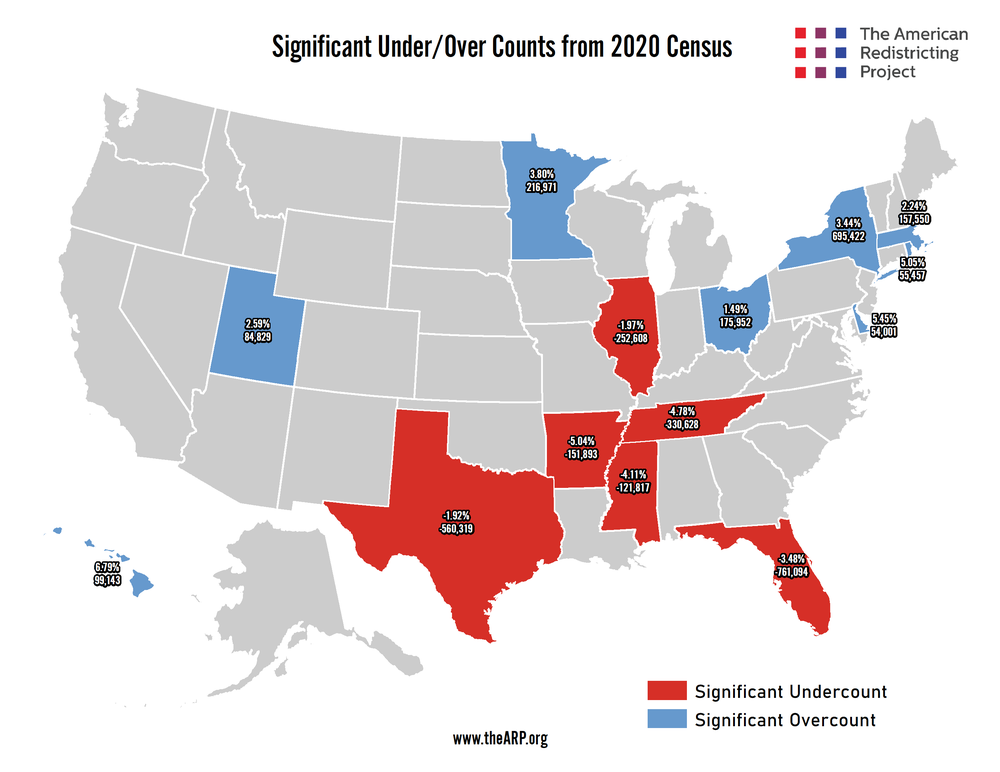Trump Orders New Census to Exclude Illegal Aliens, Defend Citizens’ Political Power
Move will address imbalances, errors in 2020 Census

President Donald Trump has instructed the Commerce Department to undertake a new census—one that counts only U.S. citizens and explicitly excludes undocumented immigrants. He announced the plan via Truth Social, saying:
I have instructed our Department of Commerce to immediately begin work on a new and highly accurate CENSUS based on modern day facts and figures and, importantly, using the results and information gained from the Presidential Election of 2024. People who are in our Country illegally WILL NOT BE COUNTED IN THE CENSUS. Thank you for your attention to this matter!
Trump’s instruction reverses the Biden-era Executive Order 13986, that had instructed the Census Bureau to keep counting illegal aliens for apportionment. During his first term, Trump attempted to add a citizenship question to the census, and issued a memo excluding illegal immigrants from apportionment—but both efforts were blocked in court.
Critics of the current system argue that including non-citizens in population data inflates representation for States that resist enforcement of immigration laws, at the expense of States that follow the rule of law. Evidence shows such inclusion skews congressional seat distribution. For example:
- A 2020 Pew study calculated that excluding undocumented immigrants could shift House seats: California, Florida, and Texas could each lose one district
- Scholarly analysis from the Center for Immigration Studies estimated that immigrants (legal and illegal), and their U.S.-born children, altered the 2020 reapportionment—resulting in multiple shifted seats favoring Democratic-leaning states
- Heritage Foundation commentary noted that if apportionment were based on citizen population alone, seven seats would have shifted post-2010—adjusting political power among 11 states.
A 2022 analysis by the Heritage Foundation revealed that the 2020 census was riddled with errors—errors that carried major political consequences. The Census Bureau later admitted that its count was wrong in at least 14 states—. overcounting in eight States and undercounting in six others. Florida missed out on two additional congressional seats, Texas lost one, and States like Minnesota and Rhode Island kept seats they should have lost. Colorado gained a seat it wasn’t entitled to at all.

These distortions are not small technical mistakes—they are shifts in political representation for an entire decade. The result? States that welcome illegal immigration gained influence in Washington, while States with tighter immigration enforcement lost it.
Constitutionally, the census is mandated every ten years (Article I, Section 2), and some have argued that mid-decade counts have no legal authority to alter apportionment without Congressional approval. Critics say any such move violates both the Constitution and the 14th Amendment’s requirement to count the “whole number of persons.”
However, while the Constitution requires a census every ten years, nowhere does it prohibit a more frequent count—especially when the previous one is shown to be inaccurate. As The Federalist points out, the census clause was never intended to be a tool for political gamesmanship. It was meant to ensure fair representation for citizens, not to artificially boost the political power of states that harbor millions of noncitizens.
Last month, Representative Marjorie Taylor Greene (R-GA) introduced a bill that would initiate a new Census and direct the Bureau to exclude non-citizens from apportionment counts. The legislation will also impose a photo-ID requirement for voting. Rep. Greene has said her bill has Trump’s support.
Supporters of a new, citizen-only census say this action isn’t about sidelining people—it’s about restoring fairness. Citizens built the Republic, They fund and defend it. Representation should reflect their interests—not those of individuals who entered the country unlawfully.
Whether Trump’s plan succeeds remains uncertain. Legal challenges will be brought, and will likely succeed before liberal judges. The current Trump administration has shown a willingness—if not eagerness—to rapidly appeal these losses, often scoring victories in higher courts. It’s possible, even likely, that this issue will be decided by the Supreme Court.




